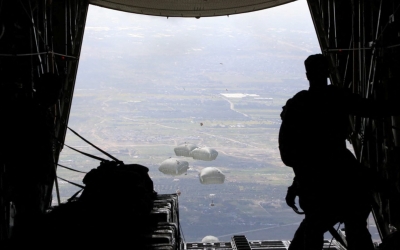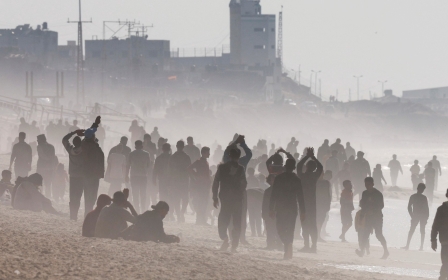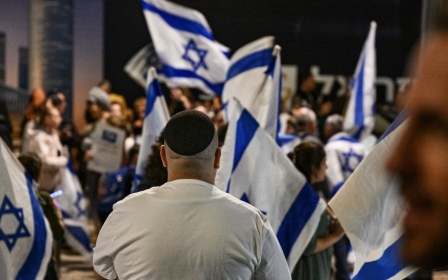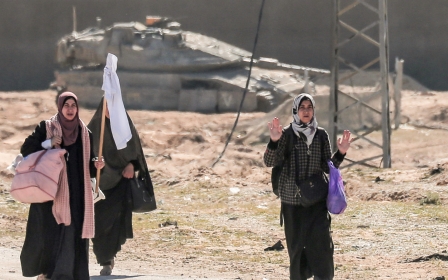War on Gaza: Israel kills police officer in charge of securing aid convoys
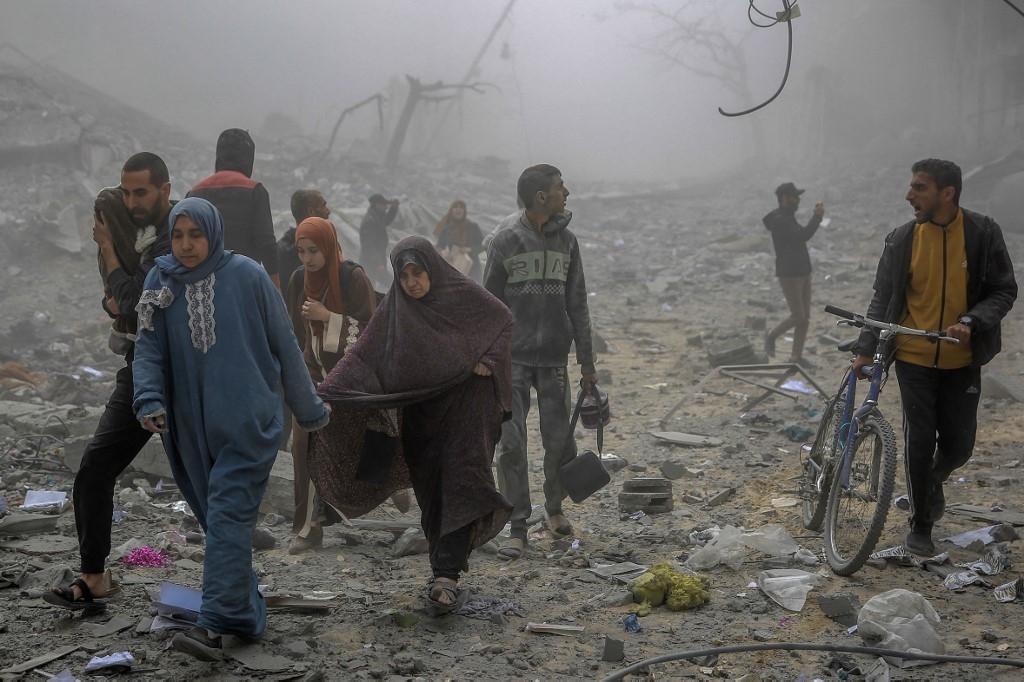
The Palestinian police general killed by Israeli forces on Monday morning was in charge of securing the entry of aid trucks into northern Gaza, according to Al Jazeera.
Citing unnamed sources, the Qatar-based network said Faiq Mabhouh, the director-general of Gaza's police operations, was credited for the recent coordination between local leaders and the UN Palestinian refugee agency, Unrwa, to secure and distribute aid coming from the south.
His efforts resulted in the safe entry of aid trucks for two nights in a row, following weeks of Israel targeting convoys and aid seekers.
Over two dozen aid trucks entered Gaza City over the weekend and reached isolated areas in the north for the first time in months.
According to the Israeli military, Mabhouh was killed during an exchange of fire with troops during the ongoing raid on al-Shifa Hospital and west Gaza City.
The Ministry of Health in Gaza has said that around one in three children are now acutely malnourished and two in 10,000 are dying of starvation.
Over half of the population who are on the verge of famine are in the northern governorates, where humanitarian access is extremely limited.
The UN Food and Agriculture Organisation said on Monday that famine is expected in northern Gaza anytime between now and May.
Israel has denied restricting the entry of aid to Gaza, claiming that the UN is responsible for blocking aid deliveries.
The Rafah crossing between Gaza and Egypt, the only gateway in and out of the strip not controlled by Israel, has been subject to tight restrictions and multiple Israeli air strikes since 7 October, creating a bottleneck of aid trucks at the border.
As of 21 October, limited humanitarian aid has been allowed to trickle through the crossing, with some aid allowed through the Karem Abu Salem (Kerem Shalom) crossing in southern Gaza in late December.
The crossing was closed again in January amid Israeli protests blocking aid into the strip.
Middle East Eye propose une couverture et une analyse indépendantes et incomparables du Moyen-Orient, de l’Afrique du Nord et d’autres régions du monde. Pour en savoir plus sur la reprise de ce contenu et les frais qui s’appliquent, veuillez remplir ce formulaire [en anglais]. Pour en savoir plus sur MEE, cliquez ici [en anglais].


